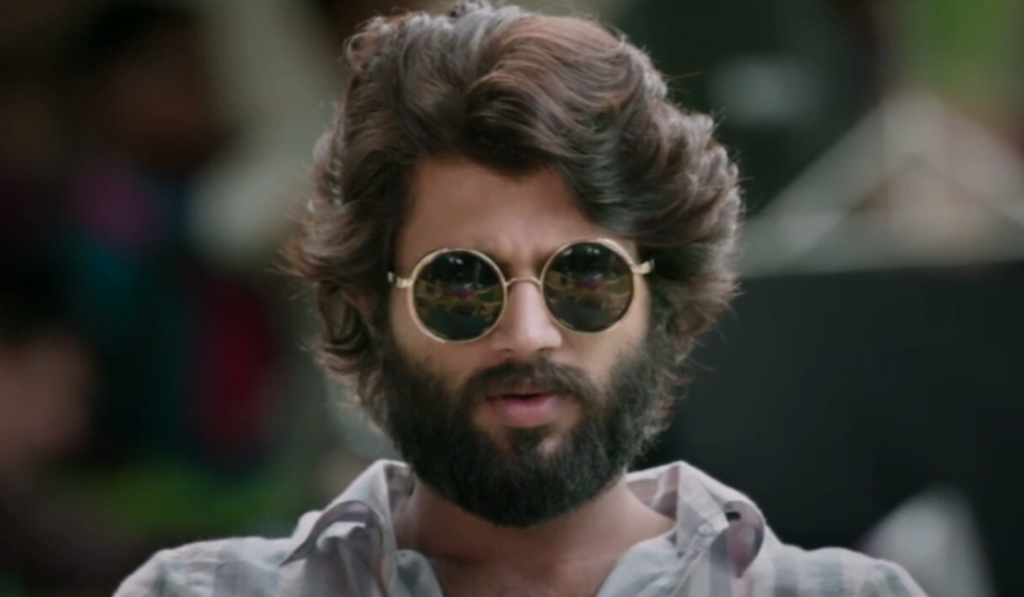Recently, the Telugu film industry, known as Tollywood, has been rocked by yet another controversy involving veteran actor Nandamuri Balakrishna. During a public event, Balakrishna, known for his larger-than-life persona on screen, was captured on camera pushing actor Anjali, sparking widespread outrage and reigniting discussions about misogyny and sexism within the industry.
Balakrishna: the controversy, the history and the power of a sexist industry
The incident occurred at a public event where Balakrishna, a prominent figure in Tollywood and a member of the Nandamuri family legacy, was interacting with fans and fellow actors. In a moment captured on video, Balakrishna is seen pushing Anjali, a well-known actor herself, in what appeared to be an aggressive manner. The footage quickly went viral, prompting immediate condemnation from various quarters, including fans, industry insiders, and women’s rights activists.
Balakrishna’s actions are symptomatic of a deeper issue prevalent in Tollywood — toxic masculinity. The industry has long glorified hyper-masculine heroes who dominate the screen.
Following the incident, social media platforms were flooded with criticism against Balakrishna, with many expressing shock and disappointment at his behaviour. Calls for accountability and apologies grew louder, demanding that Balakrishna publicly address and apologise for his actions. The incident also raised broader questions about the culture of impunity and entitlement that some celebrities seem to enjoy in the industry.
Balakrishna’s actions are symptomatic of a deeper issue prevalent in Tollywood — toxic masculinity. The industry has long glorified hyper-masculine heroes who dominate the screen, often resorting to violence and aggression as a means of resolving conflicts. This portrayal not only perpetuates harmful stereotypes but also influences societal attitudes towards gender roles and relationships.
This is not the first time Balakrishna has courted controversy. Known for his fiery temperament both on and off screen, he has been involved in multiple incidents over the years that have tarnished his public image. From verbal outbursts to physical altercations, Balakrishna’s behaviour has often been a subject of scrutiny, reflecting a pattern of unchecked behaviour that goes beyond mere eccentricity.
Balakrishna’s actions are symptomatic of a deeper issue prevalent in Tollywood — toxic masculinity. The industry has long glorified hyper-masculine heroes who dominate the screen, often resorting to violence and aggression as a means of resolving conflicts. This portrayal not only perpetuates harmful stereotypes but also influences societal attitudes towards gender roles and relationships.
Female characters are often confined to stereotypical roles that serve to complement and support the male protagonist’s narrative arc
Real to reel misogyny and toxic masculinity
Tollywood heroines are often relegated to stereotypical roles as love interests or damsels in distress, lacking agency and depth. Dialogues and scenes normalise misogyny and objectification, reinforcing patriarchal norms that marginalise women’s voices and experiences. In examining on-screen sexism in Tollywood, a spectrum of films showcases prevalent gender dynamics that reinforce traditional stereotypes and limit female characters to secondary roles.
Arjun Reddy stands out as a prime example, depicting a protagonist whose toxic masculinity is glamorised through possessive behaviour and aggressive attitudes towards women. This trend is echoed in Maharshi, where Pooja Hegde’s character, despite initial independence, ultimately serves as a supportive figure to Mahesh Babu’s journey, reinforcing conventional gender roles.

Similarly, RX 100 romanticises possessiveness and aggression, portraying Kartikeya Gummakonda’s character as driven by uncontrollable passion, which normalises and romanticises abusive behaviour under the guise of intense love.
Ala Vaikunthapurramuloo continues this trend with Pooja Hegde’s role revolving primarily around supporting Allu Arjun’s character, relegating her agency and depth. In Jaanu, Samantha Akkineni’s character lacks individual growth, existing mainly concerning Sharwanand’s protagonist, thus undermining her potential agency and independence. Saaho presents Shraddha Kapoor initially as a strong police officer but diminishes her role progressively, reducing her to a mere romantic interest and sidelining her agency in crucial plot developments.
These examples illustrate the persistent trend in Tollywood where female characters are often confined to stereotypical roles that serve to complement and support the male protagonist’s narrative arc. While some recent films have attempted to depict more nuanced female characters, such as Mahanati and Oh! Baby, the industry still grapples with deep-seated biases that perpetuate gender inequalities on screen.
Addressing these issues necessitates a collective effort from filmmakers, audiences, and industry stakeholders to challenge stereotypes, portray diverse perspectives, and empower female characters with agency, complexity, and dignity. Only through such concerted efforts can Tollywood contribute to a cinematic landscape that promotes gender equality, respect, and inclusivity.
The industry’s selective response to allegations suggests a willingness to protect its powerful figures at the expense of justice and accountability
Off-screen allegations and #MeToo
Off-screen allegations and the #MeToo movement have shed a glaring light on the pervasive issue of sexual harassment and abuse within Tollywood, yet they have also highlighted the industry’s disturbing trend of silencing victims and downplaying allegations.
Sri Reddy’s courageous actions in bringing forth allegations of harassment were met not just with initial shock but also with attempts to undermine her credibility and silence her voice. This pattern of silencing is reflective of a larger culture where survivors are often discouraged from speaking out due to fear of retaliation or damage to their careers.

Despite the initial uproar and promises of reform, the response from Tollywood has been marred by inadequacies and inconsistencies. While committees were formed ostensibly to address sexual harassment, they often lack teeth and operate without clear guidelines or enforcement mechanisms.
Moreover, the industry’s selective response to allegations suggests a willingness to protect its powerful figures at the expense of justice and accountability. This selective outrage further perpetuates a culture where survivors’ voices are marginalised, and perpetrators face minimal consequences for their actions.
The #MeToo movement in Tollywood underscored the urgent need for systemic change and a genuine commitment to creating a safer, more equitable workplace. Beyond mere lip service, there is a critical need for robust policies, independent oversight, and a cultural shift that prioritises the well-being and dignity of all industry professionals. Only through sustained efforts to dismantle entrenched power dynamics and foster a climate of transparency and support can Tollywood truly begin to address the deep-seated issues of sexism and harassment that continue to plague its corridors.
Represent, represent, represent
In the traditionally male-dominated landscape of the Telugu film industry, women filmmakers have emerged as trailblazers, challenging stereotypes and reshaping narratives with their unique perspectives. Despite facing significant barriers, including limited opportunities and entrenched gender biases, women directors like Nandini Reddy, B Jaya, and others have made substantial strides in carving out their space. They have brought stories to the screen that authentically depict women’s experiences, defying the industry’s tendency to reduce female characters to stereotypical roles or mere plot devices.
Films, such as Oh! Baby by Nandini Reddy and Chantigadu by B Jaya, have not only garnered critical acclaim but also resonated with audiences, proving the commercial viability of narratives centred on women.
By amplifying women’s voices both behind and in front of the camera, these directors have catalysed a shift towards more nuanced storytelling and representation – a small but significant push towards a more positive change.
Moreover, women filmmakers have played a crucial role in advocating for more inclusive practices within the industry. They have actively supported initiatives for gender equality, including the establishment of committees to address sexual harassment and promote safer work environments. By amplifying women’s voices both behind and in front of the camera, these directors have catalysed a shift towards more nuanced storytelling and representation – a small but significant push towards a more positive change. Their contributions not only enrich the cinematic landscape but also pave the way for future generations of filmmakers to continue pushing boundaries and challenging outdated norms in Telugu cinema.
Anjali’s response to the incident with Balakrishna highlights the systemic problems women face in the industry. Her silence or subsequent statements, whether condemning or supportive, are scrutinised under the industry’s patriarchal gaze. The incident underscores the precarious position women actors often find themselves in, navigating between career opportunities and the need to assert their dignity and safety.
The incident involving Balakrishna and Anjali is a stark reminder of the deep-rooted issues of misogyny and sexism in Tollywood. It highlights the urgent need for systemic reforms, including stronger codes of conduct, gender-sensitive policies, and mechanisms for the redressal of grievances. While the industry has made some strides towards inclusivity and accountability, much remains to ensure a safe and equitable environment for all participants.
Ultimately, addressing these issues requires a collective effort from industry stakeholders, including actors, directors, producers, and audiences. Only through sustained dialogue, introspection, and concrete actions can Tollywood evolve into a more inclusive and progressive film industry, where talent and professionalism are valued over gender and power dynamics. The incident should prompt a reevaluation of norms and practices that perpetuate discrimination and inequality in the pursuit of cinematic excellence.
About the author(s)
She/they is an editor and illustrator from the suburbs of Bengal. A student of literature and cinema, Sohini primarily looks at the world through the political lens of gender. They uprooted herself from their hometown to work for a livelihood, but has always returned to her roots for their most honest and intimate expressions. She finds it difficult to locate themself in the heteronormative matrix and self-admittedly continues to hang in limbo



